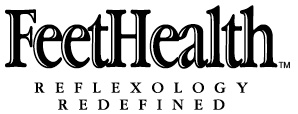 |
| |
| What is Reflexology? | ||
| Reflexology, both an art and a science, is a natural system of relaxation originating from European Zone Therapy, then further refined in the U.S. by noted health care professionals.
Reflexology is based on the scientific theory that the body is divided into ten longitudinal energy zones, which flow from the head to the feet, linking organs, glands, and systems. The foot, a sensory organ with reflex-receptor sites, when stimulated by the skillful application of specific Reflexology techniques, signals both the autonomic nervous system and sensory motor nervous system to clear the zones. This allows the energy to flow and restores balance, all of which relaxes the body. |
||
| The Benefits of Reflexology | ||
| Reflexology can naturally negate the effects of stress, including foot discomfort, by gently nudging the body towards better functioning.
Relieving pain, enhancing circulation, and boosting the immune system through Reflexology can be beneficial for helping with allergies, colds, headaches, and back pain. Sessions are non-intrusive: only your shoes and socks are removed and no greasy oils are used. The Reflexology experience is very relaxing, never painful. |
||
| Reflexology and Scientific Validity | ||
| For more than a century, an international array of documented scientific work has validated the efficacy of Reflexology.
Research studies from around the world and the U.S. have shown that Reflexology is instrumental with improving quality of life for people with diabetes, cancer, digestive and auto immune diseases. In these studies, the patients were relaxed, comforted, and achieved relief from their painful symptoms. Reflexology is gaining the recognition and acceptance of scientists and health care professionals as a valid complement to conventional medicine. |
||
| Is Reflexology an Alternative to Medical Treatment? | ||
| Reflexology works in conjunction with, rather than as a substitute for medical treatment. It works naturally with the body, and though any serious reaction is rare, there are situations where Reflexology would not be appropriate.
Consult your physician before beginning Reflexology, if you are unsure of the nature of your condition. Professional Reflexologists do not diagnose, prescribe, or treat for any specific condition, because they do not practice medicine. |
||
| Is Reflexology A Form of Massage Therapy? | ||
| Reflexology is self-regulated field separate from massage therapy. It is not a foot massage or any form of massage therapy.
Reflexology is a profession with its own theories, history, techniques, schools, books, and research studies. Reflexologists are governed by an independent national testing agency, a national education accrediting board and a national association. |
||
| Finding a Credentialed Reflexologist | ||
| To insure tested competency, consumers seeking professional Reflexology services should verify that the practitioner is Registered as a National Board Certified Reflexologist with the American Reflexology Certification Board (ARCB).
The ARCB is the testing agency for the Reflexology field. The ARCB is recognized as the only national certification board for the field of Reflexology, and should not be confused by, or substituted for, the National Certification Board for Massage and Bodywork (NCBTMB). The ARCB exam tests a Reflexologists knowledge, technical skills, and ability to document accurate assessments, using professional terminology, for referrals to appropriate health care practitioners. To find an ARCB Registered, National Board Certified Reflexologist in your geographic area contact the ARCB at www.arcb.net. |
||
| What to Expect at a Reflexology Session | ||
| At FeetHealth an educational and holistic approach is used which focuses on the feet anatomically and energetically.
The initial foot Reflexology appointment is scheduled for 90 minutes. A health history and assessment, including foot pulses, are taken. Shoes are assessed and both feet are measured. The feet are refreshed and relaxed in preparation for the session. Foot reflex points are stimulated. There may be areas that are sensitive during the session. This can be an indicator of where the feet and the body are holding stress. Reflexology should never be painful, because excessive pressure can cause unnecessary foot inflammation. The primary goal of Reflexology is to help alleviate foot tension and reduce body stress by promoting overall relaxation. |
||
| Useful Links | ||
| www.reflexology-usa.org |
||
| Laura Breillard Laroche | FeetHealth: Reflexology Redefined | Bethesda, MD © FeetHealth 2006-12. All Rights Reserved. |
||